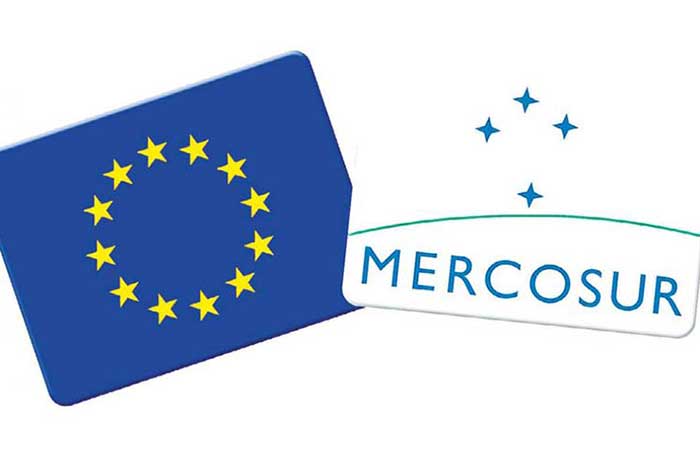
In recent days, Mercosur and the need to strengthen ties with Latin America and the Caribbean have been in Spain's focus in the wake of the United States tariffs, which went into effect today.
Madrid.- The issue was addressed insistently by Economy Minister Carlos Cuerpo, who, before businesspeople, politicians, and social stakeholders, advocated to accelerate the implementation of the European Union (EU) agreement with Mercosur.
Cuerpo is also one of the architects of an ambitious Response Plan by the Spanish government, in the order of 14.1 billion euros, to address the tariffs imposed by US President Donald Trump.
This Wednesday, the Prime Minister defended the content of the program in the Congress of Deputies, and in the face of skepticism, he called on the conservative Popular Party (PP) to maintain good rapport with the government (led by the Socialists) to push forward with the measures. The Body’s call to continue along the path of State plans with the PP relies on the fact that, together with the PSOE, they could advance the initiatives without the need for other groups.
In parallel, the Senate (Upper House) today backed a motion by the Basque Nationalist Party (PNV), with certain lines of consensus with the PP, urging the government to promote deeper ties within the EU with the 33 Latin American and Caribbean countries that are members of CELAC.
An issue raised in connection with the EU-CELAC Summit scheduled for next November in Colombia, and in line with an analysis presented yesterday at Casa de América in Madrid by the EU itself, the OECD, ECLAC, and CAF-Development Bank of Latin America and the Caribbean.
On the other hand, regarding the implementation of tariffs imposed by the US, the Bank of Spain admitted that will revise its growth forecasts and other economic aspects.
This was stated this Wednesday by the Governor of the Bank of Spain, José Luis Escrivá, when referring to the issue of economic growth and other specific issues such as inflation, markets, and employment, which will require assessments.
There are elements for which there are really no sufficiently powerful analytical tools to assess them, he noted, while also announcing that the institution will revise its economic forecasts downwards as a result of the Donald Trump tariff policy. (PL)





